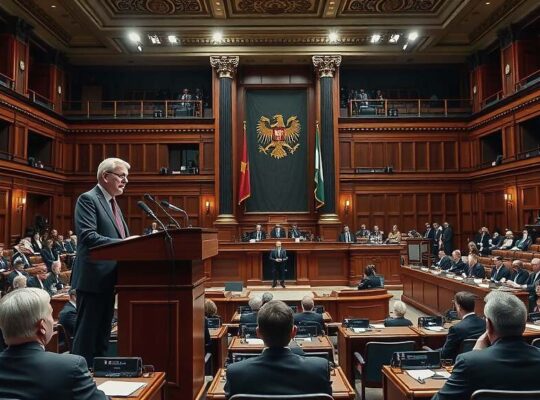The recently announced coalition measures aimed at preserving the statutory health insurance system (GKV) are insufficient to prevent further increases in supplemental contributions next year, according to industry representatives. Anne-Kathrin Klemm, chairwoman of the umbrella organization for sickness funds (BKK-Dachverband), expressed serious doubts about the sustainability of current contribution rates in an interview with Politico, challenging Health Minister Nina Warken’s recent assurances that contributions would remain capped at 2.9 percent.
Klemm’s assessment casts a critical light on the government’s strategy, suggesting the promised stability is unlikely to materialize. She warned that “numerous” sickness funds will inevitably be forced to raise contributions again in 2026 to replenish dwindling reserves. This highlights a core tension: while the government publicly commits to avoiding contribution hikes, the underlying financial pressures within the system remain substantial.
The BKK-Dachverband chairwoman directly criticized the political strategy, arguing that policymakers cannot simply sidestep the issue by issuing indirect instructions to sickness funds regarding contributions. Such a tactic, she cautioned, risks pushing vulnerable funds perilously close to insolvency. The implicit expectation placed on these organizations to absorb financial strain without adequate adjustments threatens the long-term viability and stability of the entire GKV system. The situation underscores a deeper challenge – the growing disconnect between political promises and the demonstrable financial realities facing Germany’s statutory health insurance sector.












